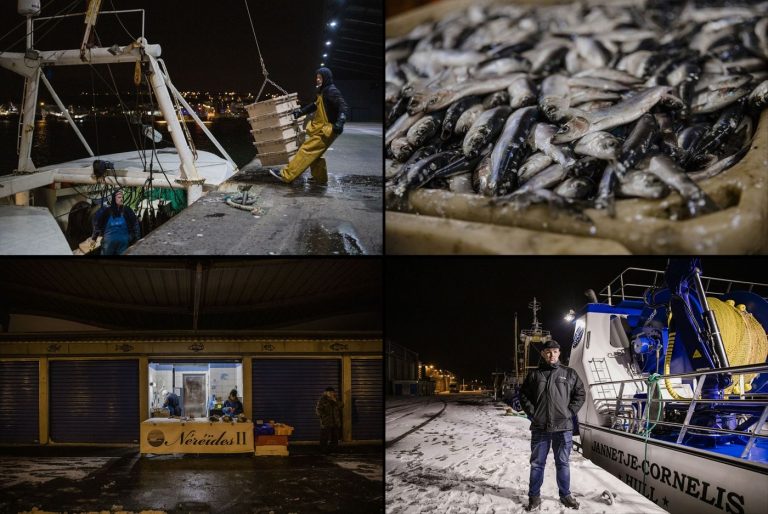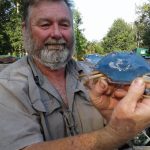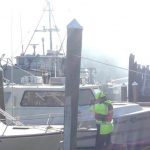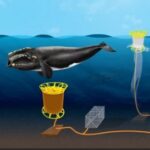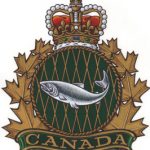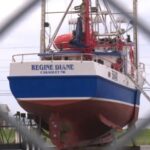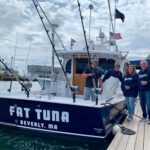Daily Archives: December 13, 2016
Disease outbreak in Logan River prawns turns ugly as politicians go to war on compensation
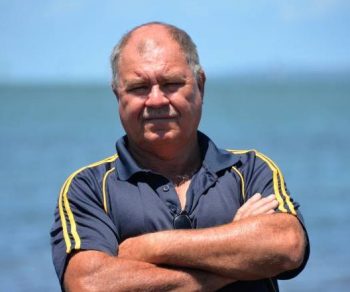 PROFESSIONAL fishermen have called for a total Logan River fishing ban in an attempt to control the spread of an exotic disease in prawns. It comes as a brawl breaks out between politicians over compensation for prawn farmers and trawler operators whose businesses have closed due to white spot disease. The disease has been found in a Logan River prawn farm, prompting the closure of it and two of the eight others nearby in the $88 million a year industry. A ban on fishing for crustaceans is already in place. Fisheries Minister Bill Byrne said no compensation would be paid but Logan River farmers and fishermen would have costs reimbursed for any work carried out under the direction of Biosecurity Queensland. Read the story here 19:46
PROFESSIONAL fishermen have called for a total Logan River fishing ban in an attempt to control the spread of an exotic disease in prawns. It comes as a brawl breaks out between politicians over compensation for prawn farmers and trawler operators whose businesses have closed due to white spot disease. The disease has been found in a Logan River prawn farm, prompting the closure of it and two of the eight others nearby in the $88 million a year industry. A ban on fishing for crustaceans is already in place. Fisheries Minister Bill Byrne said no compensation would be paid but Logan River farmers and fishermen would have costs reimbursed for any work carried out under the direction of Biosecurity Queensland. Read the story here 19:46
Gillnetters oppose WDFW initiative to raise commercial fishing license fees for residents, lower for non-residents
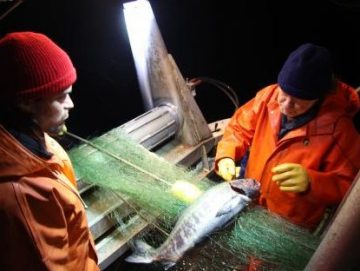 Washington Department of Fish and Wildlife has proposed an initiative called “Washington’s Wild Future: A Partnership for Fish and Wildlife” Among the policies, it calls for increasing the commercial fishing license fees. The proposed fees would generate close to $4 million in revenue per year, with $700,000 of that coming from license fee changes. Much of the policies in the initiative were modeled after Oregon and Alaska regulation. Essentially, the new legislation would increase the commercial license fee for residential fishermen by an average of 17 percent and decrease the non-resident license fee by 3 percent – something the WDFW calls “equalizing” the fees. For example, a Puget Sound Gillnetting Licenses for salmon currently costs $585 for residential commercial fishers and $890 for non-residents. Read the rest of the story here 17:32
Washington Department of Fish and Wildlife has proposed an initiative called “Washington’s Wild Future: A Partnership for Fish and Wildlife” Among the policies, it calls for increasing the commercial fishing license fees. The proposed fees would generate close to $4 million in revenue per year, with $700,000 of that coming from license fee changes. Much of the policies in the initiative were modeled after Oregon and Alaska regulation. Essentially, the new legislation would increase the commercial license fee for residential fishermen by an average of 17 percent and decrease the non-resident license fee by 3 percent – something the WDFW calls “equalizing” the fees. For example, a Puget Sound Gillnetting Licenses for salmon currently costs $585 for residential commercial fishers and $890 for non-residents. Read the rest of the story here 17:32
Marine Worms Are The $7.5 Billion Industry You Haven’t Heard Of
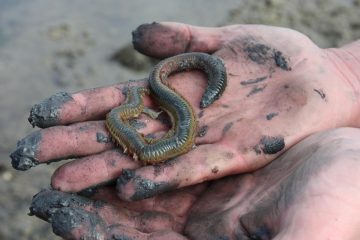 The humble marine worms used to catch fish are some of the most valuable items to come out of the sea, new research shows. For the first time, scientists have calculated the size and value of this overlooked industry. They estimate 121,000 tons of worms—worth nearly £6 billion (or about $7.5 billion in U.S. dollars)—are used for bait each year worldwide, most of these dug out of beaches and tidal flats. For comparison, that’s more than three times the annual revenue generated by the U.S. sushi industry. The estimate is especially impressive since it pertains to the use of various types of marine worms in the ocean, and doesn’t include freshwater fishing or the use of other live bait such as fish. These worms are “more expensive than any [seafood] you can think of,” says Gordon Watson, a researcher at the University of Portsmouth. Bloodworms, for example, used to catch fish like striped bass, will put you back more than $80 per pound in the United States, about four times the price of lobster. Video, Read the rest of the story here 15:27
The humble marine worms used to catch fish are some of the most valuable items to come out of the sea, new research shows. For the first time, scientists have calculated the size and value of this overlooked industry. They estimate 121,000 tons of worms—worth nearly £6 billion (or about $7.5 billion in U.S. dollars)—are used for bait each year worldwide, most of these dug out of beaches and tidal flats. For comparison, that’s more than three times the annual revenue generated by the U.S. sushi industry. The estimate is especially impressive since it pertains to the use of various types of marine worms in the ocean, and doesn’t include freshwater fishing or the use of other live bait such as fish. These worms are “more expensive than any [seafood] you can think of,” says Gordon Watson, a researcher at the University of Portsmouth. Bloodworms, for example, used to catch fish like striped bass, will put you back more than $80 per pound in the United States, about four times the price of lobster. Video, Read the rest of the story here 15:27
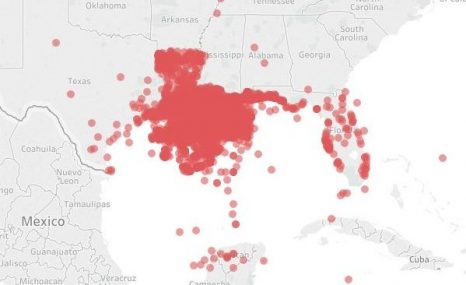
Thousands of Invisible Oil Spills Are Destroying The Gulf
Hurricane Ivan would not die. After traveling across the Atlantic Ocean, it stewed for more than a week in the Caribbean, fluctuating between a Category 3 and 5 storm while battering Jamaica, Cuba, and other vulnerable islands. And as it approached the US Gulf Coast, it stirred up a massive mud slide on the sea floor. The mudslide created leaks in 25 undersea oil wells, snarled the pipelines leading from the wells to a nearby oil platform, and brought the platform down on top of all of it. And a bunch of the mess—owned by Taylor Energy—is still down there, covered by tons of silty sediment. Also, twelve years later, the mess is still leaking. The Taylor Energy site will continue to leak for the next century,,, While the Taylor Energy spill is the worst case scenario, it’s not the US’s only low-profile leaker. Read the story here 12:57
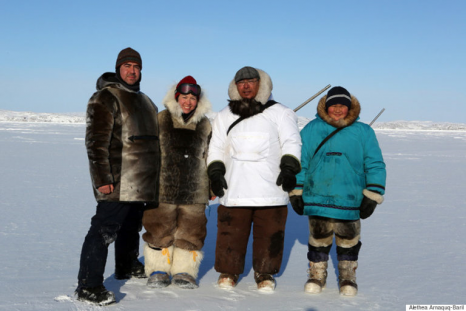
Inuit Seal Hunters Lash Out At Green Peace For Anti-Hunting Campaign
Judge separates Carlos Rafael trial from sheriff’s deputy Antonio Freitas – Carlos is up first
A federal district court judge on Monday did as some predicted and the criminal cases against New Bedford seafood mogul Carlos Rafael and sheriff’s deputy Antonio Freitas. Attorney Dan Cronin, representing Freitas, said Monday afternoon that Judge William Young in U.S. District Court in Boston also moved the start date of the trials to Feb. 6 because of scheduling conflicts. He decided Rafael would go first. Cronin had moved on behalf of Freitas that the cases be separated, but his motion was opposed on a technicality. Prosecutors agreed, however, with Rafael’s attorneys that trying both cases simultaneously would violate Rafael’s rights because of some of the things that Freitas has said in interviews that will actually be used against him and Rafael during the trial. Read the rest of the story here 08:42
the criminal cases against New Bedford seafood mogul Carlos Rafael and sheriff’s deputy Antonio Freitas. Attorney Dan Cronin, representing Freitas, said Monday afternoon that Judge William Young in U.S. District Court in Boston also moved the start date of the trials to Feb. 6 because of scheduling conflicts. He decided Rafael would go first. Cronin had moved on behalf of Freitas that the cases be separated, but his motion was opposed on a technicality. Prosecutors agreed, however, with Rafael’s attorneys that trying both cases simultaneously would violate Rafael’s rights because of some of the things that Freitas has said in interviews that will actually be used against him and Rafael during the trial. Read the rest of the story here 08:42
Charleston Fishing Families launches fund to assist families of fishermen in need
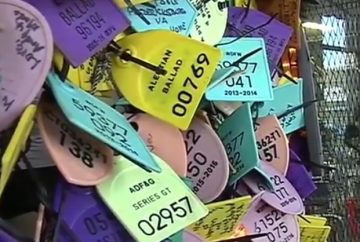 Over the weekend, Charleston Fishing Families held a ceremony to launch their Fishermen’s Relief Fund and to present their group as an official nonprofit organization. Charleston Fishing Families says, up until a year ago, there was no relief fund for fishermen and their families when a financial emergency struck. Now members of the community can donate to the fund by buying a crab pot tag and attaching it to a net at Englund Marine. The new fishing net, along with $10,000, was awarded to Charleston Fishing Families by the Bering Sea Fisherman’s Tour. It was delivered to Charleston by a man from an Alaskan fishing crew named Terry Barkley, the brother of Jerry Barkley, the captain lost on the Patty AJ last March. Video, Read the rest of the story here 08:25
Over the weekend, Charleston Fishing Families held a ceremony to launch their Fishermen’s Relief Fund and to present their group as an official nonprofit organization. Charleston Fishing Families says, up until a year ago, there was no relief fund for fishermen and their families when a financial emergency struck. Now members of the community can donate to the fund by buying a crab pot tag and attaching it to a net at Englund Marine. The new fishing net, along with $10,000, was awarded to Charleston Fishing Families by the Bering Sea Fisherman’s Tour. It was delivered to Charleston by a man from an Alaskan fishing crew named Terry Barkley, the brother of Jerry Barkley, the captain lost on the Patty AJ last March. Video, Read the rest of the story here 08:25
Small-town fisherman takes on Ottawa – Kirby Elson says controlling agreements let him operate his fishing vessel
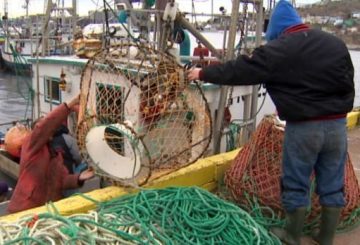 A fisherman from a small fishing town in Labrador has launched a legal challenge that could overturn decades-old federal policies in hopes of preserving independent inshore fisheries in Atlantic Canada. Kirby Elson of Cartwright, N.L., applied in June for a judicial review of a 2015 decision by the federal fisheries minister to take away his commercial fishing licences. Elson, 61, had refused to obey a DFO requirement that he exit a so-called controlling agreement with two Newfoundland and Labrador fish processors: Quinlan Brothers Ltd. and Labrador Sea Products Inc. Under the March 2003 agreement, the companies financed Elson’s snow crab licence, provided the vessel and crew, paid the insurance and covered vessel maintenance. Elson landed and sold his fish at the direction of the processors. The agreement stipulated he could not transfer the licence without company permission. Even in death, Elson’s estate was required to transfer the licence to a designate of the processors. Read the rest of the story here 07:53
A fisherman from a small fishing town in Labrador has launched a legal challenge that could overturn decades-old federal policies in hopes of preserving independent inshore fisheries in Atlantic Canada. Kirby Elson of Cartwright, N.L., applied in June for a judicial review of a 2015 decision by the federal fisheries minister to take away his commercial fishing licences. Elson, 61, had refused to obey a DFO requirement that he exit a so-called controlling agreement with two Newfoundland and Labrador fish processors: Quinlan Brothers Ltd. and Labrador Sea Products Inc. Under the March 2003 agreement, the companies financed Elson’s snow crab licence, provided the vessel and crew, paid the insurance and covered vessel maintenance. Elson landed and sold his fish at the direction of the processors. The agreement stipulated he could not transfer the licence without company permission. Even in death, Elson’s estate was required to transfer the licence to a designate of the processors. Read the rest of the story here 07:53

































